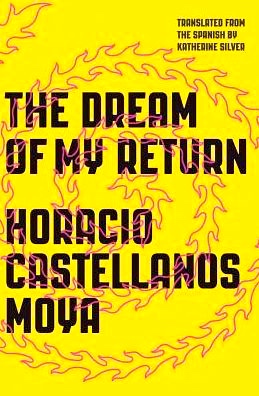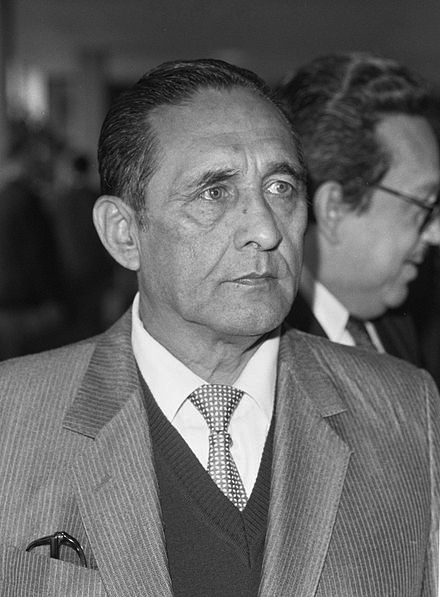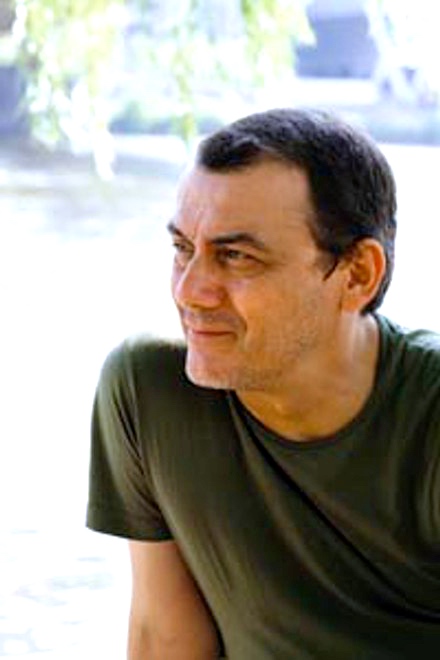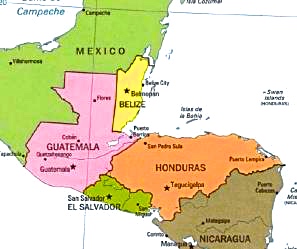“Finally I was going to [carry] out an act that would consolidate my masculinity on many different levels; as if by liquidating the person who had dared offend me in the gravest possible way, I would be fulfilling a manifest destiny that would give me access to a different level of consciousness and personal realization, because from then on I would have a more rigorous understanding of life…I would never forget that everyone must pay what they owe.”–Erasmo Aragon
 In a novel which defies genre, author Horacio Castellanos Moya takes paranoia to new and often darkly humorous heights as Erasmo Aragon, a Salvadoran journalist who has been living in exile in Mexico, tries to fulfill his dream of returning to El Salvador, now that that country is beginning to seem less dangerous after its many coups. The author’s real-life experience gives verisimilitude to Erasmo’s story, and his sense of perspective regarding his own life allows him to depict the excesses of his narrator’s chronic over-analyzing and unproductive dithering with a kind of humor rare for a novel about revolutions and revolutionaries. Castellanos Moya himself lived through many events similar to those affecting this narrator. Born in Honduras, he traveled with his parents to El Salvador as a baby and lived there during his teen years and for many years after that as an investigative journalist. His first novel, known in English as Senselessness, became a controversial success for its unvarnished depiction of the genocide of Mayan Indians by an unnamed country (which appears to be Guatemala), and when the author’s mother received an anonymous death threat aimed at him, the author went into self-imposed exile in Mexico for ten years. He later came to the United States and lived and taught at the City of Asylum in Pittsburgh, a residence for exiled authors who cannot return home.
In a novel which defies genre, author Horacio Castellanos Moya takes paranoia to new and often darkly humorous heights as Erasmo Aragon, a Salvadoran journalist who has been living in exile in Mexico, tries to fulfill his dream of returning to El Salvador, now that that country is beginning to seem less dangerous after its many coups. The author’s real-life experience gives verisimilitude to Erasmo’s story, and his sense of perspective regarding his own life allows him to depict the excesses of his narrator’s chronic over-analyzing and unproductive dithering with a kind of humor rare for a novel about revolutions and revolutionaries. Castellanos Moya himself lived through many events similar to those affecting this narrator. Born in Honduras, he traveled with his parents to El Salvador as a baby and lived there during his teen years and for many years after that as an investigative journalist. His first novel, known in English as Senselessness, became a controversial success for its unvarnished depiction of the genocide of Mayan Indians by an unnamed country (which appears to be Guatemala), and when the author’s mother received an anonymous death threat aimed at him, the author went into self-imposed exile in Mexico for ten years. He later came to the United States and lived and taught at the City of Asylum in Pittsburgh, a residence for exiled authors who cannot return home.
Erasmo Aragon, like the author, is a journalist living in exile in Mexico so that his compatriots “will not carve him up.” Unmarried, he has been living with a woman named Eva and their little daughter Evita for several years, but he is now looking forward to returning “home” and taking part in a journalism project, now that the Salvadoran government and its rebels are negotiating, and lasting peace appears to be a possibility. His common-law wife and daughter will remain behind in Mexico, not for idealistic reasons on Erasmo’s part, but because Eva has slept with another man, an actor, and he is outraged and bitter. Though he himself has not even come close to being faithful to Eva, he is nevertheless infuriated by her unfaithfulness, despite her profuse apologies and her professed faithfulness since that time, something he refuses to believe. His anxieties have made him a victim of hypochondria, among other psychological illnesses, a man almost paralyzed by his fears. His past, detailed here, certainly has not been without its traumas, and he believes that every individual, as he grows up, lives through all the different eras of evolution on a greatly reduced scale. When Erasmo goes to a doctor for his chronic “liver problems,” the doctor tells him he does not have liver problems. He has Irritable Bowel Syndrome instead, probably left over from the “evolutionary change” in which cave men (and modern-day infants, as they live through one of the earliest stages of evolution) learn not to foul the place where they themselves live, an anxiety-making learning experience – and the first big hint of the dark humor and irony hidden within the novel.

Jose Napoleon Duarte, almost certainly elected President of El Salvador in 1972, if the count had been accurate, became President in 1984. Erasmo Aragon's father was murdered just before the election.

Erasmo and The Rabbit meet at the National Auditorium during a play starring Antolin, the man with whom Eva was unfaithful, to decide his future.
Perhaps because of the author’s own experiences, the depiction of Erasmo Aragon’s high anxiety and his imagined conclusions about his health and his life ring true for the reader, who quickly becomes involved in the psychological “action.” As Erasmo is thinking about the past and the political activities of some of the friends and family with whom he is still involved, the reader, too, begins to imagine all the ways in which Erasmo may be being “set up” for disaster by these “friends.” Soon the reader becomes as preoccupied with Erasmo’s problems as he is, worrying about his decisions and his plans to return to El Salvador. Some of what he says or imagines as true is open to question, but soon everyone Erasmo knows has become for him a suspect, or an informer, or a collaborator with the CIA, or a Communist, or an enemy out for revenge. As the old saying goes, however, “Just because you are paranoid doesn’t mean everyone is not out to get you.” As complications and danger develop, the novel races to its conclusion, a wickedly sardonic eventuality which makes complete sense but comes as a huge surprise.
Of the four novels by Castellanos Moya which have been translated into English, this is the lightest, and though it has serious ideas, it is also the funniest and most seductively involving. Translator Katherine Silver, who keeps the stream-of-consciousness style running nonstop in colloquial English, also makes the details so lively that the story is both compelling and full of fun. Castellanos Moya, a favorite of mine, is an author who, over the years, has had much to say about human rights, political crimes, repression, dictatorships, and executions. At the same time, he realizes that there is a limit to how much horror a reader can process at one time, and he often uses his sense of irony and dark humor, strategically employed, to highlight his themes and plots in new ways, making them palatable and far more memorable for their irony. A short novel with a big impact for the reader.
ALSO by Castellanos Moya: SENSELESSNESS, TYRANT MEMORY, THE SHE-DEVIL IN THE MIRROR
Photos, in order: The author’s photo by Heather Mull appears on http://www.pghcitypaper.com
President Duarte, exiled after the election of 1972, which most observers believe he won, is shown on http://en.wikipedia.org/ from [1] Dutch National Archives, The Hague, Fotocollectie Algemeen Nederlands Persbureau (ANEFO), 1945-1989 bekijk toegang 2.24.01.05 Bestanddeelnummer 934-1054.
The National Auditorium is where Erasmo Aragon and The Rabbit met to see a show called Life is a Dream, starring Antolin, lover of Eva, mother of the speaker’s child. http://www.escunited.com/
ARC: New Directions


